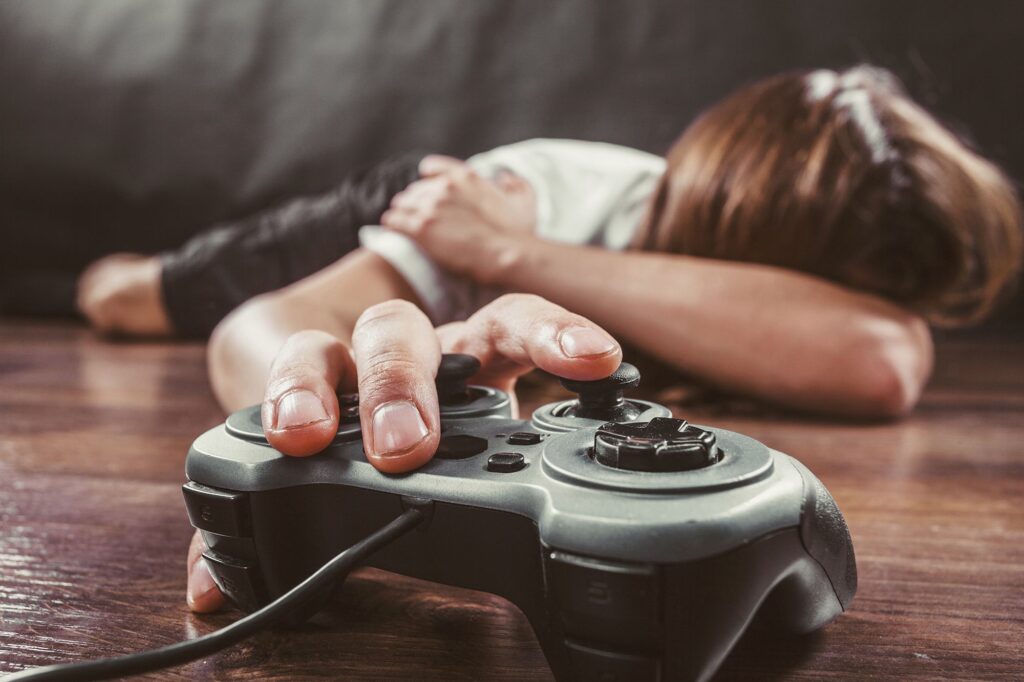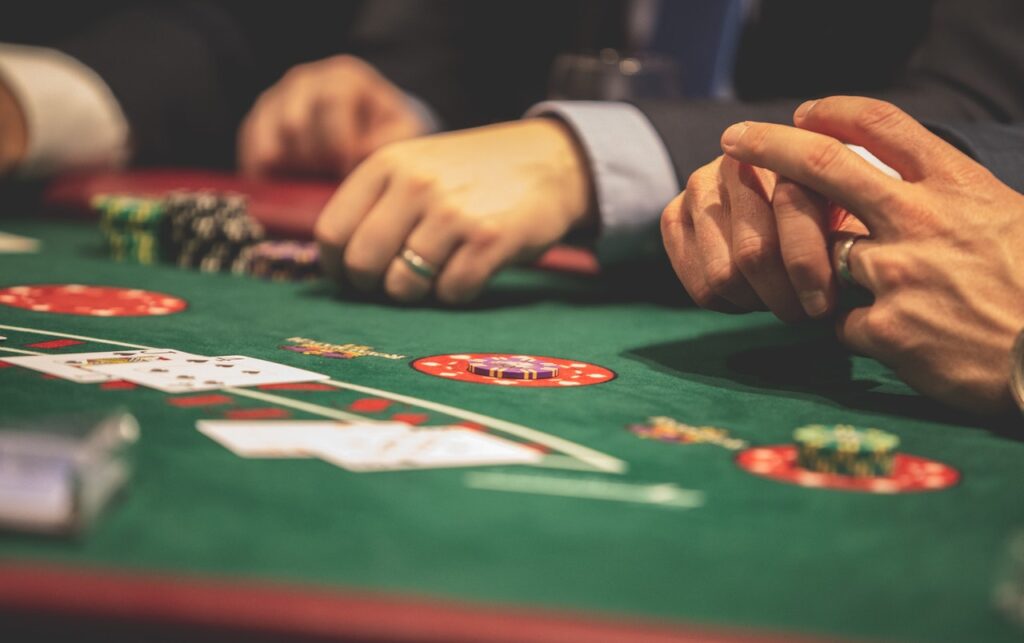
What Are Common Non-Substance Addictions?
Over the past year, many people handled their anxiety, depression, and other mental health disorders in a variety of ways.
Some found new hobbies, others binge watched hours of TV. However, some people filled their time with scrolling through online stores and ordering boxes and boxes of items they didn’t need.
Others would spend 12+ hours on social media a day, desperate to feel connected after being isolated for so long.
Others still downloaded gambling apps on their phones or played betting games online.
Not everyone realizes that an addiction doesn’t need to be to an addictive substance. Instead, someone can become addicted to a feeling – the rush they get when they win a few dollars on a bet. Or the high of opening a package that’s been sitting on your doorstep.
Let’s dive more into the substance-less addictions, and you can see if these patterns remind you of anyone you know who may need help.
Shopping addiction

“Retail therapy” is a term that’s been coined by shopping lovers. In reality, there’s no therapeutic value to compulsive shopping.
People often shop to experience positive feelings when they click the “check out” button. However, this is a vicious cycle. Because while they feel good in the moment, they often regret and experience feelings of guilt and shame shortly after the purchase. So, to feel better, they browse online some more.
This pattern of not being able to break from this circle is a common tendency in addiction. These self-proclaimed “shopaholics” often joke about their issues with spending, but deep down they may know that they are having a hard time stopping.
While most addictions are quite expensive, a shopping addiction can be even more so based on the nature of the addiction. If someone has a penchant for luxury items, a nightly shopping binge can cost them hundreds, if not thousands, of dollars.
Many people who compulsively buy don’t actually use these items either. Sometimes they have a designated room or storage space for their purchases. This can create further shame for the person any time they walk by the space, which can trigger them to shop more.
Social media addiction

This term gets thrown around a lot. We may all be able to think of a few teenagers we know who we might say have an “addiction to social media.” However, if someone truly develops an addiction toward social media, it can take a drastic toll on their mental health.
Take someone who obsessively scrolls through their Instagram feed every day. While we all know everyone is trying to make themselves look good, it can be easy to forget this and compare yourself to your peers, idols, or even random strangers. And when you’re doing this for hours on end, every day, your self-worth quickly takes a dive.
Now, say that same person spends a great deal of time and energy choosing the perfect photo to post, along with crafting the perfect caption and adding the best filter. If the post only gets a handful of likes, the person uses this as fuel that they’re not good enough. Worse yet, if they get negative comments from cyberbullies, they may invent new reasons why they don’t like themselves. The repercussions from this can be very drastic, including self-harm.
Video game addiction

When you think of video game addiction, your mind probably goes to a teenage boy. However, there are many adults who struggle with their level of video game obsession. With more and more complicated online worlds, people find themselves getting sucked into these exotic, fantastical places. They build friendships with others online, and want to spend the majority of their time playing games.
They also are likely sitting for hours on end as they play, which isn’t good for their body. This is especially true for someone who works at their computer all day only to play video games all night.
There’s also the desensitization to violence, which is a hot topic in today’s world. Does playing a game where you brutally murder people have any long-term effects on our mind? While people debate both sides of this point, it’s important to consider regardless.
Gambling addiction

A well-known non-substance addiction is gambling. Much like a shopping addiction, people who struggle with gambling can very easily lose their life savings if they’re left to their own devices.
People enjoy gambling because of the uncertainty of the bet. Will I win or won’t I? This competitive energy can give some people a kind of high, and they continue to gamble well past their financial limits.
While gambling used to take place mostly at racetracks or casinos, people can now easily bet online, making it constantly accessible. This can lead to a common issue that people struggling with gambling fall into — debt, sometimes with some dangerous people.
Food addiction

While food is a substance, it’s a substance we all need to survive. So when someone develops an unhealthy relationship with food, it can be extremely difficult to work towards changing the dynamic.
A food addiction can come in a few different forms. Someone may be addicted to eating, and continue to eat long after they’re full. They may not have control over what they eat, and often experience shame after a binge.
Other people can become addicted to a specific food. These are often highly sugary or salty foods that have a tendency to leave you wanting more.
Getting help for a non-substance addiction
Just because you’re not struggling with a highly addictive substance doesn’t mean you can always just kick the habit on your own. There are very serious consequences from these addictive behaviors that can affect your health, relationships, finances, and more, so it’s important you give it the serious attention it needs.
A good first step is finding a therapist to talk through why you feel the need to shop or gamble. Your therapist may recommend you go to a private treatment center, such as The Exclusive Hawaii, where you can spend 30 days or more uncovering the deeper psychological reasons behind your addictive behavior.
